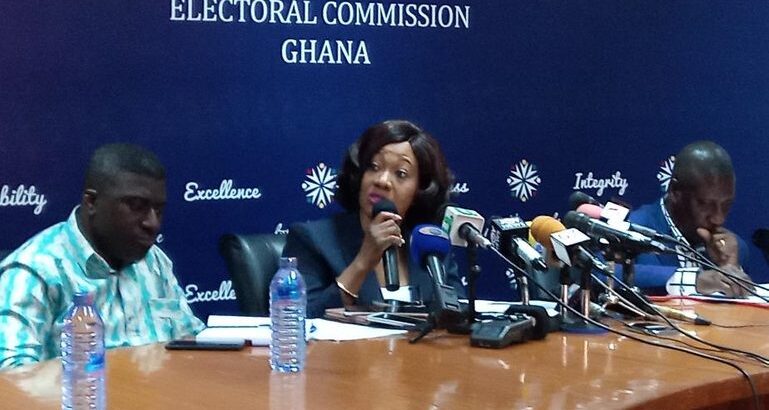A former Deputy Attorney General, Joseph Dindiok Kpemka, has called for stakeholder engagement with the Electoral Commission (EC) and political parties on the proposed change in the electoral date.
According to him, reaching a consensus makes it easier for all parties to accept the outcome of the polls.
“I am just pleading that IPAC should again meet immediately and see how they could resolve unanimously,” he said..
Mr Kpemka argued that the EC’s call for a change in the election date is a step in the right direction since it affords the Commission the luxury of time to properly plan for a runoff if there is one.
“If there is a run-off, you go to do the election around 28 or 29 of December and you have seven or eight days within which you do a transition. That is practically impossible so it makes sense to have November,” he added.
Meanwhile, the former Attorney-General agreed with arguments by the political parties and stakeholders for the Electoral Commission to release the calendar for the December 2024 polls.
He added that when this is done, it clears all doubt in the minds of everybody.
“I agree with the argument that the reforms could have been done earlier. That argument makes sense to me and convinces me because last year, we could have initiated it. Two years ago we could have initiated it.
“At times the election was far ahead so that there are no controversies, and then we resolve it long ahead of time so that we don’t bring it into a crowded electoral calendar, especially where there is no consensus.
“My fear is when there is no consensus, it goes against the party. They raise alarm here and there, and there is fury. But we want to keep everybody together as a nation, so consensus-building should be the watchword,” he added.
On January 22, the Chairperson of Ghana’s Electoral Commission, Jean Mensa, suggested shifting the date for both Presidential and Parliamentary elections from December 7 to November 7.
Additionally, the EC advocated for election days to be designated as national holidays.
Already, the religious group, the Seventh Day Adventists (SDA) has suggested a change in this year’s voting day, which falls on Saturday, a day they hold sacred, so members of the group can participate in the national exercise, while their worship places, most of which serve as polling centres, are freely available for use.


